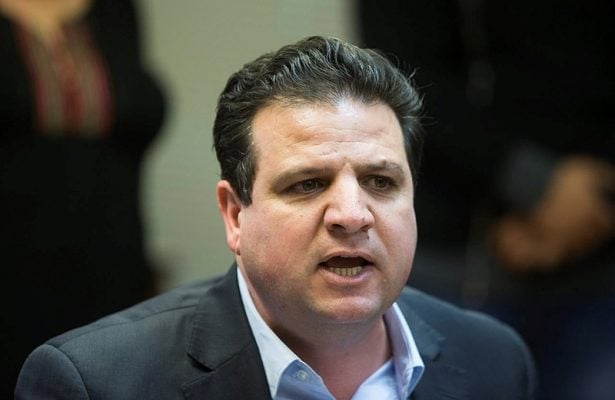Arab MKs and citizens put most of the blame on the government for not dedicating the necessary resources to stop the rising violence.
By Batya Jerenberg, World Israel News
The Israeli Arab sector went on strike Thursday to protest what it calls “government inaction” in the face of a rising crime wave that has taken at least 71 lives since the beginning of the year.
The call for a general strike was made following an emergency meeting of the political and social leadership of the two-million strong Arab-Israeli community: the Joint List in the Knesset and the Monitoring Committee for Arab Citizens of Israel.
The direct impetus was the murder on Tuesday of two brothers, Ahmed and Khalil Manna, who were shot in the Upper Galilee town of Majd al-Krum in broad daylight. But all of September was a particularly brutal month, with 13 Arab deaths reported in criminal incidents.
The leadership called for all businesses and public and educational institutions in Arab localities to be closed, though Israel’s Education Ministry that all schools would be open as usual.
The 13 Joint List MKs announced that they are boycotting Thursday afternoon’s opening of the 22nd Knesset “to protest of the negligence and apathy of the government and enforcement authorities regarding the plague of crime and violence in Arab society.”
A mass demonstration was planned to take place in Majd al-Krum, an Arab town located in Upper Galilee, and smaller protests are scheduled to be held at the entrances to Arab towns and villages throughout the country.
The head of the Joint List Ayman Odeh called for the public to take “unprecedented measures until we force the authorities to acknowledge the gravity of the situation.”
This included the suggestion to close major highways in a mass protest, because “this is the only way to bring about real change,” he said.
The Arab leadership acknowledged that their community should be held partially accountable for the surge in violence, but insisted that the government was not mobilizing the police and the courts as it should.
“Seventy percent of the solution to the problem of crime lies in the hands of the Israeli authorities, while the Arabs are 30 percent responsible,” said Odeh.
Monitoring Committee head Mohammed Barakeh, a former MK, agreed with the assessment but added that the Arab leadership does not possess “the authority to confiscate [illicit] weapons or indict the criminals. This is the job of the State.”
The committee used even harsher language in its communique regarding the strike.
“The police and government are colluding with the [Arab] crime organizations. The authorities know very well where the weapons in the Arab villages are coming from,” the committee charged.
Several leaders openly said the reason for government and police inaction stemmed from racism against their community. They demanded a crackdown on organized crime, a push against drug dealers, and a concerted effort to seize illegal guns, just as has successfully been done in the past in Jewish cities to reduce the crime rate.
But some ordinary citizens, who said that they “live in fear,” also blamed the Arab leaders and even called for their resignation.
A relative of the murdered Manna brothers shouted out at the meeting, “We are fed up with you….All your talk is nonsense. Our children are being killed on the streets. What have you done for us?”





